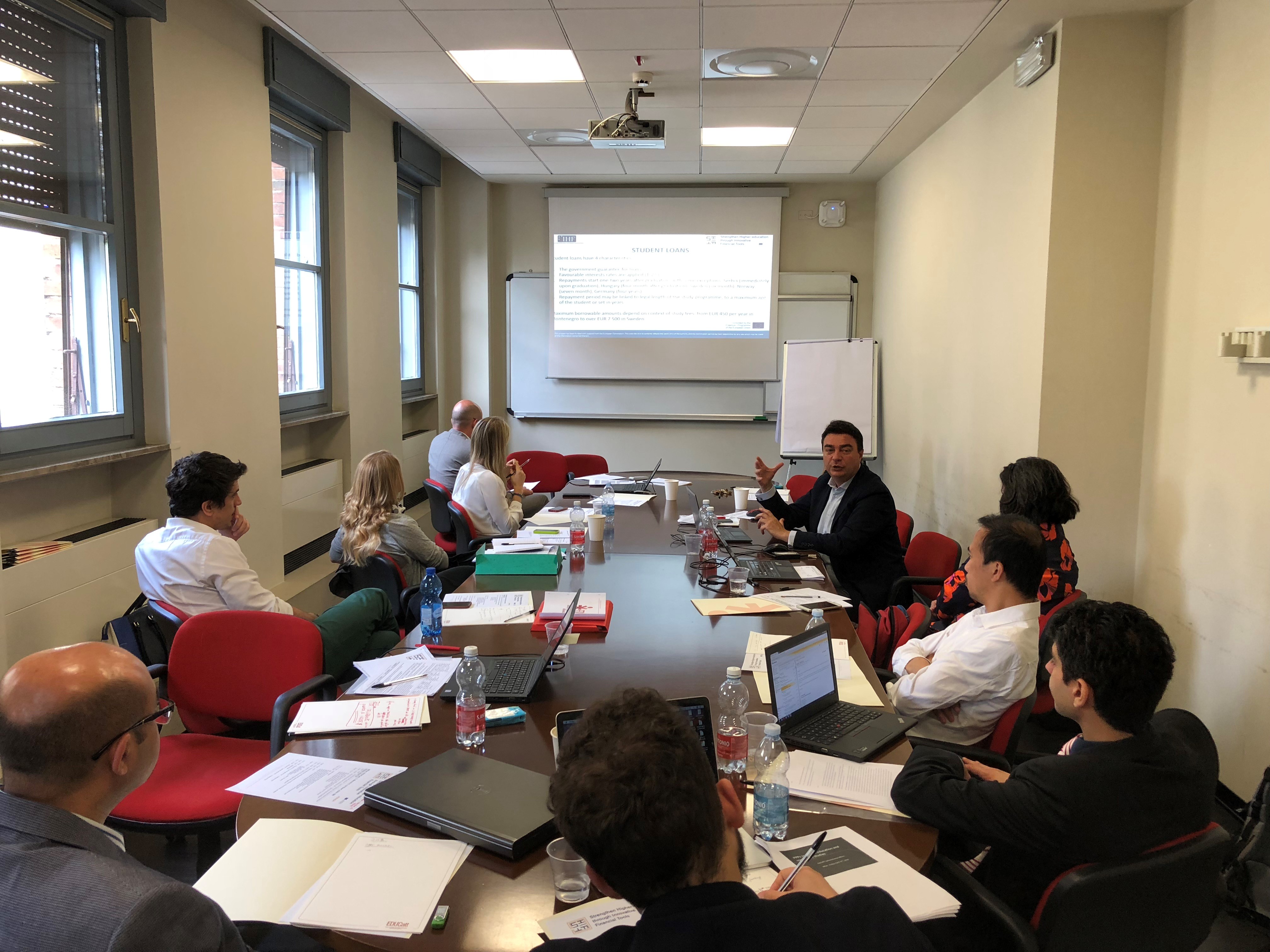CASE in Milan for the 2nd Meeting of SHIFT, an Erasmus+ Project
CASE was in Milan, Italy on April 27th for the 2nd Transnational Project Meeting of SHIFT (Strengthen Higher-education through Innovative Financial Tools), a Project co-funded by the Erasmus Plus Programme of the European Commission, Key Action 2, Strategic Partnerships for Higher Education.
SHIFT is implemented by a Consortium of 7 partners from 4 European countries (United Kingdom, Belgium, Italy and Poland). SHIFT will develop and validate an innovative financial model to support Higher Education students in Europe.
During the meeting, Partners presented key findings of IO1 - Mapping Financing Dynamics of HE Students and discussed how they can feed IO2 - Innovative Financial Model for HE Students. Indeed, IO1 was aimed at identifying how HE students finance their studies within Project Countries and all over the Europe in order to understand which is the best financial model to suit their needs.
Under IO2, SHIFT will develop and validate an innovative funding model for both Higher Education students who receive grants/loans and Higher Education Institutions that manage public resources.
An important issue discussed during the meeting was Dissemination and Exploitation activities since Partners are strongly committed to give great visibility to the Project.
CASE experts – Agnieszka Paczyńska and Klaudia Wolniewicz-Slomka, were responsible for preparing a country report on how the higher educational system is financed in Poland. The research they carried out was based on literature review, student’s survey and in-depth interviews with different stakeholders. Desk research revealed a large body of existing work and data related to higher education system in general as well as on financial dimension. The student survey was carried using a student’s questionnaire, in both, online and offline versions. The identical questionnaire was used by other countries participating in SHIFT project. In total, CASE received 342 replies from Polish students. Interviews were carried with eleven stakeholders representing different groups: policymakers, banking sector, public and private universities and students’ association.
The results of the analysis show that Poland stands out from other EU countries regarding the fact that almost all private spending on tertiary education comes from households, while the business sector participation is marginal. This low private sector financial involvement is a result of a broader phenomenon – generally very weak co-operation between HEIs and the business sector. Also, the analysis shows that different types of financial support are available for students, of which the student loans are the least popular. The reasons for this were presented in the last showCASE article titled: “Why are Polish students not interested in study loans?” written by Klaudia Wolniewicz-Slomka. The whole country report will be available on CASE website soon.
For further information on SHIFT please visit http://www.project-shift.eu/

Photo: Magda Mantegazza
